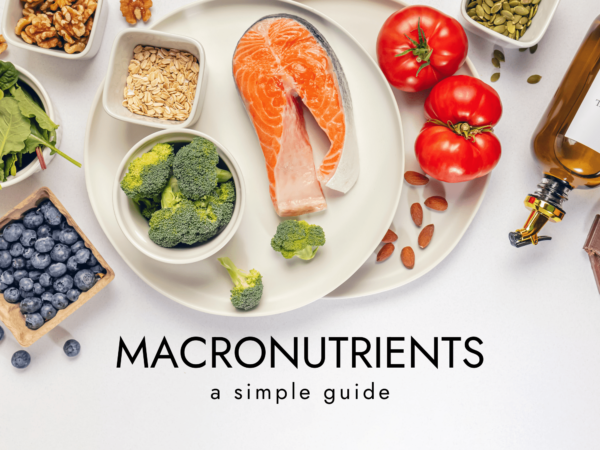Mental Health and Immune System:
Our comprehensive guide explores the critical link between mental well-being and immune health. Discover the power of mindfulness, meditation, stress management, and sleep’s vital role in boosting Immunity—essential reading for anyone looking to enhance their overall health naturally.
Welcome to “Mental Well-Being and Immune Health: Holistic Strategies for a Healthier You.” In this guide, we delve into the crucial connection between Mental Health and Immune System Boosting Strategies and how they interplay to affect our overall health.
Exploring the Symbiosis Between Mind and Body
Our journey begins with understanding the intricate link between mental well-being and our immune system. Mental health is often an invisible pillar supporting our physical health, and its impact on our immune response is profound.
A Preview of Holistic Health Strategies
We will explore various topics, including mindfulness, stress management, the vital role of sleep, and natural ways to bolster your immune system. This guide aims to provide actionable strategies to enhance your mental well-being and immune health, fostering a more balanced and resilient you.
Join us as we uncover effective practices and habits that can help strengthen your mental and immune health, setting the foundation for a more vibrant and healthier life.

Mental Health: The Invisible Pillar of Immune Strength
In health, mental well-being plays a critical yet often underrecognised role in shaping our immune system’s efficacy.
Linking Mental Health and Immune Function
Research increasingly shows a direct correlation between one’s mental state and immune response. Chronic psychological stress, for example, can weaken the immune system, making the body more susceptible to infections.
The Impact of Psychological Stress on Immunity
Stress triggers the release of cortisol and other stress hormones, which can suppress the immune system’s effectiveness. Managing stress is, therefore, not just about mental health but also about safeguarding physical health.
Mental Well-Being as a Health Cornerstone
Prioritising mental health is vital. Activities promoting mental well-being, such as relaxation techniques, positive social interactions, and hobbies, can indirectly bolster immune health. A healthy mind is a critical component of a healthy body.
This section highlights the profound impact of mental health on our immune system, underscoring why mental well-being should be an integral part of any health strategy.

Mindfulness and Meditation: Pathways to Immune Resilience
In the quest for better health, mindfulness and meditation emerge as powerful tools, influencing not just mental tranquillity but also fortifying physical health, particularly immune strength.
Benefits of Mindfulness on Mental and Immune Health
Mindfulness, the art of being fully present and engaged, has been proven to reduce stress and inflammation, which is vital for a robust immune system. By alleviating stress, this practice indirectly bolsters the body’s immune response.
Simple Techniques to Practice Mindfulness
Incorporating mindfulness into daily life can be simple and adaptable to busy schedules:
- Mindful Breathing: A basic yet effective method focusing on the rhythm of your breath.
- Body Scan Meditation: Attentively progressing through different body parts to identify and relieve tension.
- Mindful Walking: Transforming a regular walk into an opportunity for mindfulness by concentrating on the sensations of movement and surroundings.
What Constitutes Meditation? Exploring Diverse Forms
Meditation isn’t one-size-fits-all; it encompasses various forms that cater to different preferences and lifestyles:
- Guided Meditation: Using recorded instructions or apps for a guided experience — ideal for beginners.
- Mantra Meditation: Repeating a calming word or phrase to focus the mind.
- Mindfulness-Based Stress Reduction (MBSR): A structured program that combines mindfulness and yoga, suitable even for those with demanding schedules.
- Short Meditation Sessions: Brief, consistent sessions can be integrated into daily routines, offering flexibility and effectiveness.
Regular Meditation and Enhanced Immune Response
Regular meditation can lead to long-term neurological benefits associated with stress reduction and a healthier immune system. It’s not about the duration but the consistency of practice that counts.
This section highlights the importance of mindfulness and meditation as vital components in improving mental well-being and building a more resilient immune system adaptable to various lifestyles.

Stress Management Strategies for Immune Health
Understanding and effectively managing stress is crucial for maintaining a robust immune system. Prolonged exposure to stress can significantly impair immune function.
The Relationship Between Stress and Immune Function
Chronic stress can negatively affect the immune system by reducing the body’s lymphocytes, the white blood cells crucial for fighting infections. As noted by health.gov, long-term stress can lead to health problems, including heart disease, obesity, high blood pressure, and depression.
Effective Stress Management Techniques
Adopting effective stress management techniques can mitigate the detrimental effects of stress on the immune system:
- Regular Physical Activity: Exercise is a proven stress reliever and immune booster.
- Deep Breathing Exercises: They help in reducing stress hormone levels.
- Yoga and Tai Chi: Combining physical postures, breathing exercises, and meditation, these practices are effective in stress reduction.
- Quality Time with Loved Ones: Social interactions can lower stress levels and improve well-being.
Long-Term Benefits of Stress Reduction on Health
Managing stress is not just beneficial for immediate relief but also has long-term health benefits. According to sources like Psych Central and the American Heart Association, effectively managing stress can improve blood pressure, mental health, and sleep quality and reduce risks of health issues such as heart disease, stroke, and depression.
Furthermore, mindfulness meditation is recognised by the American Psychological Association for reducing the body’s stress response, leading to numerous positive outcomes.
These stress management strategies enhance your mental well-being and contribute significantly to a more robust immune system.

The Sleep-Health Connection
Sleep is a fundamental component of both mental well-being and immune health. Understanding and improving sleep quality is vital to enhancing overall health.
Role of Sleep in Maintaining Immune System
Adequate sleep is crucial for the immune system’s functioning. It aids in producing cytokines, proteins that target infection and inflammation, essential for an effective immune response.
How Much Sleep is Considered Sufficient?
The amount of sleep needed can vary by age and individual needs, but generally, adults require 7-9 hours of sleep per night for optimal health. Consistently achieving this amount is vital for maintaining a robust immune system and mental well-being.
The Difference Between Sleep Before and After Midnight
Quality sleep is not just about duration but also about timing. Sleep before midnight is often considered more restorative than sleep that begins after midnight. This is due to the body’s natural circadian rhythms, which are aligned with environmental light cycles. Therefore, going to bed earlier can contribute to more effective and restful sleep.
Tips for Improving Sleep Quality for Better Health
To enhance sleep quality:
- Establish a Consistent Sleep Schedule: Aim for daily sleep and wake times.
- Create a Restful Environment: Ensure your bedroom is conducive to sleep, dark, quiet, and cool.
- Limit Screen Time Before Bed: Reduce exposure to blue light, which can disrupt sleep patterns.
The Consequences of Sleep Deprivation on Mental and Immune Health
Insufficient sleep can lead to various health issues, including weakened immune function, increased stress and mental health challenges. Prioritising adequate and quality sleep is fundamental in supporting mental well-being and immune health.
This section highlights sleep’s critical role in immune health, emphasising the importance of quantity and quality for overall health and well-being.

Boosting Immunity Naturally
Strengthening the immune system naturally is a critical component of maintaining good health. This section explores natural ways to boost Immunity, the role of diet, exercise, and lifestyle, as well as debunking common myths.
Natural Ways to Strengthen the Immune System
Boosting your Immunity can involve a combination of approaches:
- Balanced Diet: Consuming a diet rich in fruits, vegetables, lean proteins, and whole grains.
- Regular Exercise: Engaging in moderate exercise regularly to boost the immune system.
- Adequate Sleep: Ensuring sufficient and quality sleep, as discussed, is vital for immune health.
- Stress Management: Managing stress through techniques like meditation and mindfulness.
Role of Diet, Exercise, and Lifestyle in Immune Health
The synergy between diet, exercise, and lifestyle choices plays a significant role in the functioning of the immune system. Nutrient-rich foods provide the necessary vitamins and minerals, exercise helps in the efficient circulation of immune cells, and a healthy lifestyle supports overall well-being.
Debunking Myths About Immune Boosters
It’s important to be aware of the myths surrounding immune boosters. No single food or supplement can ‘boost’ Immunity instantly. Immune health is built over time through consistent healthy habits.
This section highlights that a natural and balanced approach is critical to building and maintaining a robust immune system. It emphasises that it integrates multiple health practices rather than relying on quick fixes.

Exclusive Offer: Empower Your Immune System with Our Comprehensive Guide
Unlock the secrets to a robust immune system with our exclusive e-book: “Building Immunity for Life: Your Ultimate Guide to Boosting Your Immune System Naturally.”
This 50-page guide is brimming with expert insights, practical tips, and reliable strategies to fortify your Immunity. This guide has it all, whether you want:
- to revamp your diet
- enhance your exercise routine
- or find natural immune boosters
Get your copy now and start your journey to a healthier, more resilient you, courtesy of your dedicated Nutrition Buddies at SPARTAN.

Integrating Mental Health Practices into Daily Life
Adopting mental health practices is essential for boosting immune health. This section offers practical steps to integrate these practices into daily life, ensuring a holistic approach to health.
Practical Steps to Incorporate Mental Well-Being Practices
Incorporating mental health practices into your daily routine can significantly impact your immune system:
- Set Aside Time for Relaxation: Daily periods of relaxation can reduce stress, benefiting both mental and immune health.
- Engage in Regular Physical Activity: Exercise is good for physical health, reducing anxiety, and improving mood.
- Practice Mindfulness and Meditation: As discussed, these practices can enhance mental clarity and immune function.
Building a Routine that Supports Both Mental Health and Immune System
Creating a routine that equally prioritises mental and physical health can lead to a more balanced life. This might include scheduled exercise, dedicated time for meditation, and ensuring a nutritious diet.
Personalising Your Approach
It’s important to remember that there’s no one-size-fits-all approach to mental health and Immunity. Personalise your routine to fit your individual needs, preferences, and lifestyle.

Frequently Asked Questions
Addressing common questions can provide additional clarity on Mental Health and Immune System Boosting Strategies. Here, we answer some of the most frequently asked questions to help further demystify these topics.
Q1: Can mental health practices improve immune function?
A: Yes, mental health practices such as stress reduction and mindfulness have positively impacted immune function by reducing the body’s stress response, which can suppress immune activity.
Q2: How much exercise is beneficial for mental and immune health?
A: Moderate exercise, like a daily 30-minute walk, can significantly benefit mental and immune health. The key is regularity rather than intensity.
Q3: Are there specific foods that can boost mental well-being and Immunity?
A: Foods rich in antioxidants, omega-3 fatty acids, and vitamins, such as berries, nuts, and leafy greens, benefit mental health and immune function.
Q4: How long should I practice mindfulness or meditation to see benefits?
A: Even short sessions of mindfulness or meditation (around 10-15 minutes daily) can yield noticeable benefits. Consistency is more important than the length of each session.
Q5: Can improving sleep quality impact my immune system?
A: Absolutely. Quality sleep is crucial for the optimal functioning of the immune system. It helps in the regulation and production of critical immune cells.
This FAQ section addresses common queries, providing clear and concise information to guide your mental well-being and immune-boosting strategies.

Final Thoughts
As we conclude our guide on Mental Health and Immune System Boosting Strategies, reflecting on the interconnectedness of mental health and immune function is important. The journey to better health is not just about physical well-being but also about nurturing our mental state.
Recapping the Importance of Mental Health and Immune System Health
The guide has emphasised the vital role of mental well-being in supporting a robust immune system. Practices like mindfulness, stress management, quality sleep, and a balanced diet play a significant part in this relationship.
Encouraging Holistic Health Approaches
We encourage you to adopt a holistic approach to health. Integrating the strategies and practices discussed in this guide can improve mental well-being and a more robust immune system.
Your journey to health and well-being is unique, and we hope this guide has provided valuable insights and practical steps to support you on this path.
Join Our Community for a Healthier Tomorrow
We’d love to hear from you if you found this guide insightful. Please share your thoughts in the comments, spread the knowledge by sharing this post, and consider subscribing to our channel for more empowering health and wellness content.
Let’s take this journey together towards a healthier, more balanced life.

Sign Up for Our Free 7-Day Email Course
Embark on a Week of Transformation
Ready to dive deeper into a Sustainable Healthy Lifestyle? Sign up for our free 7-day email course: “New Year, Nourished You: A 7-Day Journey to Personalised Health Mastery.” This course is designed to kick-start your journey to better health with daily insights and practical tips.
Daily Guidance Right to Your Inbox
Each day, you’ll receive valuable content right in your inbox, covering a range of topics from nutrition to exercise, stress management, and more. These daily emails are crafted to provide you with the knowledge and motivation needed to pursue a Sustainable Healthy Lifestyle.
Take the First Step to a Healthier You
Don’t miss this opportunity to gain insights and tools that can transform your approach to health and well-being. Sign up now for our 7-day email course and take the first step towards a healthier, more vibrant you.





